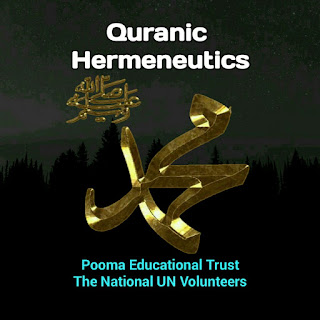A tool in the hands of CREATOR for HIS creations
THE FOUNDER
1. Name and Jurisdiction
The Society shall be called POOMA EDUCATIONAL TRUST having its registered office at Ramanathapuram ( DIST), Tamilnadu State where all meetings under these rules will be ordinarily held. Though the trust is registered under the trust Acts of TN, India, It has no jurisdiction for the service to the humanity across the World.
2. Objectives of the Society
The aims and objectives are public charitable objectives as expressed in the Memorandum. Those are,
1. To support the Ten Principles of United Nations.
2. To galvanise the gallants into glory
3. To humanise the humanity.
4. To learn to lead and to excel.
5. To make Peace, to promote Peace and to live in Peace.
6. To honour and to appreciate the well deserved.
3. Field of Service
1. Social service
2. Educational service
3. Health and hygiene
4. Trustee members
For the better service to render towards the education, Educationists in need, the trust inducts some of the well known educationists across our nation as trustee members for the support and guidance.
They are,
1. Mrs. Kather Fathima Azeez( Chairman)
2. Ms. Pooma Begaum(The President)
3. Mrs. Daly Felicitus (Vice chairman)
4. Mr. Syed Ali(Vice President)
5.. Mrs. Priyadharshini (Secretary)
6. Ms. Ishrath (Org. Sec)
7. Mrs. Sumaiya (Functional Sec)
8. Dr. L. P. Ravi Kumar( Trussurer)
9. Mr. Anil Kurup ( The Patron)
5.Promotion
Pooma Educational Trust forms and promotes International Union of Educationists' Forum (IUEF) , Dalycher Teachers foundation (DTF) and United Teachers Union (UTU)- group of intellectuals to make sure the better service towards education in India and abroad under the guidance and support of trustees. IUEF, DTF and UTU shall be officiated by the trustee members of Pooma Educational Trust
6. Objectives of IUEF, DTF and UTU
1. To provide scholarships to the underprivileged rural orphan or single parented students.
2. To felicitate the students who are very good at studies and character with cash awards for the pursue of their higher studies.
3. To organise career guidance and counseling programs to the students who wish to pursue their higher studies.
4. To organise empowerment programmes for teachers, School leaders and parents through which updating them in their respective fields.
5. To organise National and International EduSummits, EduMeets, conferences for the educators.
6. To felicitate teachers, school leaders, school owners and parents.
7. To conduct various types of competitive examinations for the students and educators and felicitating them with excellence certificates and medals.
8. To organise general awareness programmes to the common people concern in the field of education, health and social.
9. To resolve all types of consequences and face challenges legally.
10. To promote and establish educational institutions, clubs, councils, forums, fraternities, foundations, federations and unions for the cause of Education and health.
7. Power
Without prejudice to the generality to the aims and objectives of the Trust as defined in the Memorandum of Association and matters specifically dealt with in these rules the Trust will have powers to do all such acts as shall be deemed to be incidental and conductive to the attainment of the aforesaid objectives.
8. Construction
The Trust shall consist of individual persons both male and female.
9. Members
There shall be following classes of members:-
Life Members
Honorary Members
Ex-officio Annual Members
LIFE MEMBERS – The Trust may elect any person as Life Member without any payment.
HONORARY MEMBERS – The Trust may elect any person as Honorary Member for any specific period without payment of any fee.
EX-OFFICIO ANNUAL MEMBERS - The Trust may decide holders of certain posts in State Government, Union Government or organizations or companies to be taken as Ex-officio Annual Members without payment of any fees.
10. Termination of Membership
Membership of the Society will be terminated on any of the following reasons:-
By resignation
By loss of qualification
By death
11. Rights and Privileges of members
Subject to the provision of these rules generally or any Bye laws there under, a member shall amongst other have the following rights and privileges –
1. Right to vote at General Meetings of the Society.
2. Right to seek election to the Board or any Committee of the Society subject to the provision of Rules here in after mentioned
3. Right to obtain information about working and accounts of the Society
12. Ineligibility for membership
A person shall not be eligible for being chosen as a member of the Society or a representative to its Assembly – if,
1. He/ She holds any office of profit under the Society.
2. He/She has been adjudged by a competent court to be of unsound mind or is deaf and mute or is one suffering from leprosy or tuberculosis.
3. He/ She is an un-discharged insolvent.
4. He/She has been convicted of any offence in solving moral turpitude.
5. He/She is so ineligible by any Rule or Bye-laws of the Society.
13. Management
The management of the Society and its affairs and the administration and enforcement of its rules, regulations and Byelaws shall be entrusted to the Board of Trustees which shall also deal with all permanent and temporary appointments as well as dismissal or suspension of the office staff.
14. Properties and funds
The properties both movable and immovable, if not vested will vest in the Board of Trustees and they will be sole authority to acquire and dispose off the properties and funds in the manner they decide to attain the objects of the Society. Income by voluntary contributions, donations and subscriptions or otherwise to the Society will constitute the funds and will be utilized partly or entirely by the Board of Trustees for attainment of the aims and objects of the Society as set forth in its Memorandum of Association and no portion thereof be transferred directly or indirectly by way of dividend, bonus or otherwise by way of profits to its members provided that nothing therein shall prevent any payment of remuneration in return for any services actually rendered to it. The Board of Trustees may keep part or whole of the properties both movable and immovable including funds in custody of such person or persons as they think safe and beneficial in the interest of the Society.
The trust generates funds for its functioning from the trustee member's alms giving money called ZAKAT. That is 2.5% from their annual income.
15. Assets and liabilities
All assets and liabilities of the Pooma Educational Trust, the undersigned Society shall vest in the Registered Society forthwith.
16. Composition of the Board of Trustees
The Board of Trustees shall be constituted as follows with powers to co-opt one member: -
1. The Cheif Patron
2. The Patron
3. The Chairman
4. General Secretary
5. The Joint General Secretary
6. The Treasurer
7. 5 Members
8. Maximum 9 Members
17. Rules for Meetings.
1. ANNUAL GENERAL MEETING
If the Board’s Annual Report and the Treasurer’s audited Statement of Accounts cannot be circulated for any reason, the same should be placed before the Annual General Meeting stating the reasons thereof. This, however, will not invalidate the proceedings of the Annual General Meeting. The Annual General Meeting shall ordinarily be held during the month of January each year. The Managing Trustee shall issue 21 (twenty one) clear days’ notice in writing to all affiliated organizations and individual members at their registered address, intimating the date, time and place of the meeting. An agenda, specifying the nature of business to be transacted at the meeting shall accompany the notice. A copy of the Board’s Annual Report and Treasurer’s audited Statement of Accounts of the previous year shall be circulated to the members at least three clear days before the date fixed for the meeting.
At the Annual General Meeting the following business shall be transacted: -
1. Confirmation of the minutes of the proceedings of the Previous Annual General Meeting and Special General Meetings, if any.
2. Consideration and adoption of the Annual Report of the Board with modifications, if any.
3. Consideration and adoption of the audited Statement of Accounts presented by the Treasurer with modifications, if any.
4. Election of office-bearers and members of the Board by votes of members present and entitled to vote under the rules.
5. Appointment of auditors for the next year and fixation of their remunerations.
6. Consideration of any business including amendment of the Constitution, of which due notice has been given under these rules.
Delay in convening the General Meeting in their stipulated period will not invalidate the proceedings. The members of the Board will continue in office till such time there is no fresh election.
In case there is delay of more than three months the Chairman will convene the General Meeting and conduct a fresh election, and the outgoing office-bearers will be accountable in all respects to the newly elected Board.
If the Annual General Meeting falls through or is prematurely dissolved, a fresh notice shall be given for the said Annual General Meeting Fixing another date within such period as the Board shall deem proper not withstanding anything contained in these rules. The rule as to 21 clear days
notice shall not apply in such cases.
2. SPECIAL GENERAL MEETING
A Special General Meeting may be called at time by either of the following-
1. By order of the Chairman
2. By a decision of the Board
All resolutions intended to be moved at such requisition meetings shall be sent in writing to the Managing Trustee. Not less than 7(seven) clear days notice shall be given by the Managing Trustee to all members for a Special General Meeting in which no business other than the business specified in the agenda shall be considered.
3. BOARD MEETINGS
Meetings of the Board may be convened at any time by the Chairman and the Managing Trustee and also upon a requisition signed by at least 3 (three) members of the Board. In case of requisition meetings, at least 72 hours notice must be given.
If a quorum be not present within half hour of the appointed time, the meeting shall stand adjourned to some other date, at such adjourned meetings of the Board of which fresh notice will be given by the managing Trustee. The members present, whatever their number shall be competent to transact all the business which could have been transacted at the ordinary meeting had a quorum been present thereat. No fresh agenda shall be included in such adjourned meetings.
On any issue of urgent nature and under special circumstances the Managing Trustee may also obtain the approval of the members of the Board by circulation and act accordingly provided that, majority of members favor the proposal so circulated. But such cases must be placed at the next meeting of the Board for formal ratification.
18. Quorum
Quorum shall consist of not less than 3(three) members present in the meeting to pass any valid resolution.
19. Powers of the Board
The Management of the business and affairs of the Trust shall be vested in the Board who in addition to the powers and authority by rules expressly conferred upon them and the Board may exercise all such powers and do all such acts as may be Necessary or expedient for conducting the affairs of the Trust and as are not hereby or by legislative enactment expressly directed or required to be exercised by the Trust in a General Meeting.
The Board shall, save as provided hereinbefore, have the following powers-
To carry out the objectives of the Society specified in the Memorandum of Association
To maintain, continue the stipends, scholarships, prizes awarded by the unregistered Society
To procure, accept, collect and receive subscriptions, donations, gifts, legacies, contributions and endowments for the benefits of the Trust
To make donations or gifts to literary and charitable institutions or causes or to other societies, trusts, institutions, clubs, students and persons with same or similar object or objects
To manage, administer the funds and properties of the Trust in any manner they like best for attainment of the aims and objectives of the Society
To co-opt any expert or specialist for any specific purpose as and when necessary, but such a person shall have no power to vote
To refuse membership to any person or persons without assigning any reason and to suspend or remove any member for gross misconduct
To nominate the Managing Trustee or any other member or members to act on their behalf with full authority to sign any deed or document or to give a valid effectual discharge as if all the members of the Board acting jointly
For purposes of carrying out the charitable objects of the Society to borrow or raise or secure the payment of moneys from Banks and other financial institutions on such terms as the Board of Trustees may decide and if required by the lender of mortgage or charge all or any of the property and assets both present and future
In case the Board of Trustees think it necessary for carrying out the charitable objects to invest the funds of the Trust in such shares and securities as they think fit and also to deal with any such shares and securities from time to time as the Board thinks fit
To appoint a Secretary of the Society to carry out day to day business of the Society
Function of the Managing Trustee The managing Trustee and joint Managing Trustee will have all powers of the Board as enumerated in Rule 16 in the absence of the Board. He may exercise such power and authority as he deems proper in the absence of the Board. He is authorised to delegate any such power or powers or authority to the Secretary as he thinks fit
Function of the Honorary Treasurer The Honorary Treasurer will act subject to the control of the Board and/or the Managing Trustee inter-alia to do such things as required under these rules.
Function of the Secretary The Secretary will do such work as will be delegated to him by the Managing Trustee.
20. Amendment of Memorandum and Rules and Bye-laws
The Trust shall have power to alter, extend or abridge the purpose for which it is established as stated in the Memorandum of Association in the manner provided in section 12 of the Societies Registration Act (XXI of 1860).
21. Residuary Power
Any matter not provided for in these rules shall be dealt with by the Board.
22. Dissolution and after
The Trust may be dissolved at a General Meeting in pursuance to the provisions of Section 13 of the Societies Registration Act, 1860.
If upon the dissolution of the Trust there shall remain after the satisfaction of all liabilities and debts and property whatever, the same shall not be paid to or distributed amongst the members of the Trust or any of them but shall be given to some society or trust having same or similar objects as of the Trust on such terms and conditions to be determined by not less than 3/5 th of the members present personally or in default thereof it shall be determined according to the provisions of the Act 21 of 1860.
23. Suits by or against the Trust
The Trust shall sue or be sued in the name of the Managing Trustee or in Trustee or in the name of the Secretary or Trustee of the Trust who has been authorised in this behalf by a RESOLUTION of the Board of Trustees.
24. Repeals
The Constitution of the unregistered Society, Pooma Educational Trust together with all its amendments is hereby repealed.
25. Transitional provisions
Notwithstanding the repeal by this Constitution of the enactments referred to in rule 22 but subject to other provisions of this Constitution, all legal acts done, legal contracts entered into and other legal business, if any, transacted under the Constitution of the unregistered Society Pooma Educational Trust prior to the commencement of this Constitution, will have force as if they were done, entered into and transacted under this Constitution.
FORM OF CERTIFICATE OF RULES AND REGULATIONS CERTIFIED to be a true copy of the Rules of the POOMA EDUCATIONAL TRUST

















Comments
Post a Comment